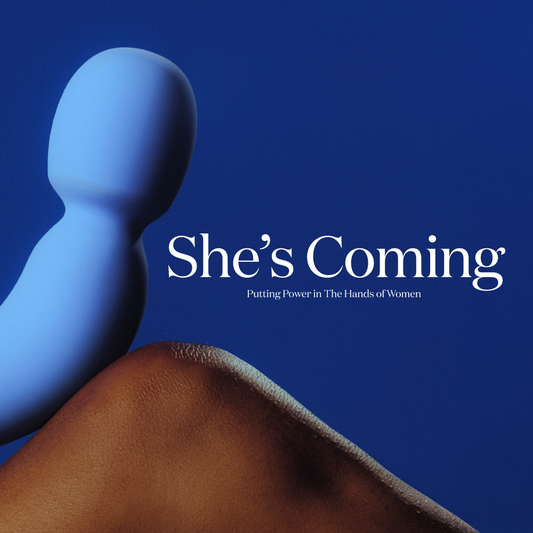This is part two in a three-part porn series we're featuring on Dame. You can find part one here. Stay tuned for part three! Do you watch porn? Do you like it when you’re watching it (and during the masturbation that usually accompanies it) but feel kind of… bad, afterward? You’re not alone: Shame about pornography consumption is super common. People feel shame about porn for a huge range of reasons, from feeling like a bad feminist, to thinking they’re a bad person for the types of videos they watch, to hearing their religious leader’s voice in their head the minute after they finish masturbating. But millions of people (and they’re not just young men, or young adults) watch porn – and many of them feel guilty. Should they? Many sex educators and sex therapists say “absolutely not.” Let’s talk to two experts, Dr. Jess O’Reilly, host of the @SexWithDrJess podcast; and Dr. Jennifer Rhodes, PsyD, a licensed psychologist, dating coach, image consultant and founder of Rapport, A Boutique Relationships Agency. We’d like them to help us figure out where that shame comes from, and discuss the healthy – and potentially unhealthy side effects – of porn. First things first: Is watching porn bad? And why do so many of us feel shame about consuming porn? “Our culture assigns shame to sexual behavior in general, and porn is just one form of sex,” Dr. Jess tells Dame. “We also tend to add an extra layer of shame and stigma to sex work, and porn involves sex work.” Dr. Rhodes agrees. “I think it comes from the porn industry in general,” Dr. Rhodes says. “It’s not like people who are considered porn stars have a stellar reputation in our culture. And so I think anything related to porn, whether it’s good or bad, just gets associated with the porn star culture. And I also think that we in the United States are just a little more uptight about sex in general.”
The two factors, of course, don’t stand alone. Sex workers are stigmatized in our culture because we’re uptight about sex. Someone who is visibly enjoying sex – and taking money to do it – is therefore placed in the “bad” or “immoral” category. That’s despite the fact that billions of people are consuming porn, and therefore consuming sex work, every year.
But just because Internet porn consumption is widespread, it doesn’t mean that everyone is consuming it in a healthy way. Dr. Rhodes reports that “referrals for socially anxious men have skyrocketed since #MeToo.” These clients come to her with very little real-life experience with women and often little experience with “real sex,” which makes them worried that they’ll be accused of sexual assault when and if they do have a sexual encounter. Dr. Rhodes has also found that these same men are “gravitating toward porn to fulfill their sexual desires” because they’re “avoiding women in real life.”
“Doing that in isolation without discussing it with someone, and not having real life contact with women, leads many men to view sex as a very mechanical thing,” Dr. Rhodes says. “It also conflates what women actually want, so they end up very confused and very lonely.” They may wind up with unrealistic expectations about body images, or potential sexual encounters, from watching porn. And that may even lead to sexual dysfunction issues like erectile dysfunction during partnered sexual activity.
Dr. Jess has a suggestion for those guys, as well as anyone else who consumes porn: Be critical.
“Be a mature viewer and accept that porn is a produced product with lighting, direction, special effects, editing, etc.,” she says. “You’re able to watch superhero movies and understand the production elements (and you don’t try to emulate Wolverine), so apply the same rational thought to porn.”
She also thinks that pornography use can be unhealthy and have negative effects, but for her it’s more about the amount of time it consumes.
“Can porn be unhealthy?” she says. “Of course. So can kale, money, and golf.”
Point being: Everything is bad for you when you do it too much or approach it with an unhealthy mindset. But, she says, just don’t call it pornography addiction, or a type of sex addiction.
“I have no doubt that porn can be alluring and distract from real-life sex in some cases, but the description ‘porn addiction’ is often scapegoated to avoid personal responsibility and accountability,” Dr. Jess says. “Moreover, porn use is so ubiquitous that if it was inherently harmful, we’d see more universal adverse outcomes. And in fact, since hardcore porn has become more widely availability, we’ve seen the opposite (violent crime has dropped, divorce rates are down). I’m not suggesting that porn is responsible for a reduction in violent crime or divorce, but simply that there is a correlation.”
So that’s the shame and unhealthy part. But I also wanted to know: Can consuming porn be good for you, and might it even have health benefits? Both doctors, with their caveats in mind, say that it can be a great way for couples to open up a conversation about sex, fantasy, and even what makes them uncomfortable.
“Porn can generate interesting (and awkward) conversations with a partner,” Dr. Jess says. “Watching porn with your partner can be both awkward and exciting, but it’s the balance of these contradictory emotions that inspires the most fruitful conversations. If you feel awkward, be honest. Tell your partner why you’re uncomfortable – is it the act itself, or the characters or scenery that makes you uneasy? If you feel excited, it’s an opportunity to express to your lover the details of what turned you on; whether it was the music, lighting, setting, seduction, position, sounds or characters in the film, sharing this information with your partner will only enhance your sex life as you continue to learn about one another’s unique desires.”
In other words, porn and erotica may actually reinforce an already healthy relationship and lead to greater sexual satisfaction in the long run.
Dr. Jess also points to studies that show a correlation between the increased availability of porn and a drop in violent crime toward women, as well as one that found that men who watch porn have “more egalitarian attitudes regarding gender.”
“As the availability of porn has increased, sexist views have decreased among men,” Dr. Jess says. “Again, this is correlation, not causation. I want to be very clear that I’m not crediting porn with reducing sexism, but if it really were responsible for sexism, we would see a trend in simultaneous increases, which simply doesn’t exist.”
Ultimately, porn is about sexual fantasy, and sexual fantasy in and of itself is not unhealthy. If you’re consuming porn and it doesn’t negatively affect your mental health, sexual health or any other part of your life and well-being, there’s no need to feel bad about it. Push back against puritanism and embrace the joy and pleasure and fun that sex can bring.




















































